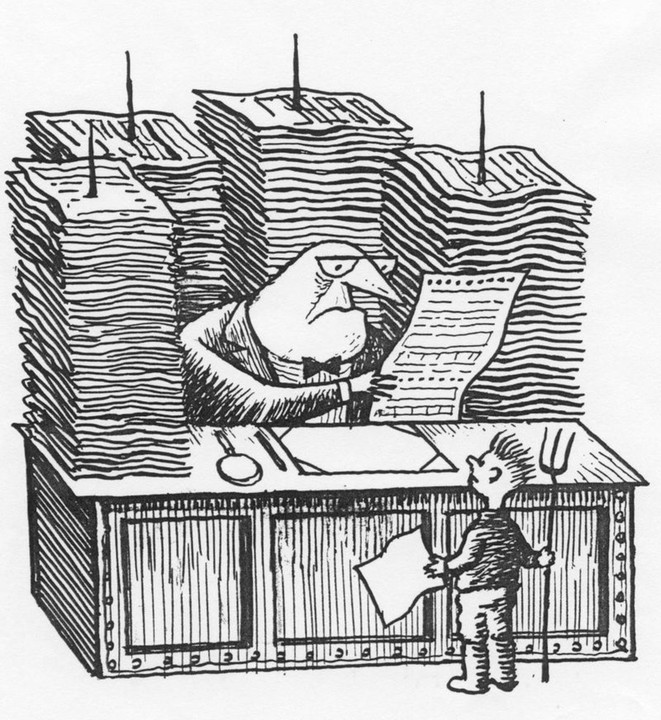
Je zou toch denken, dat zorg kan rekenen op eerlijke zorgvragers, oprecht geïnteresseerde zorgverleners en meedenkende zorgverzekeraars. Maar ondanks het begrip zorg, wat inherent de nobele aandacht voor beterschap van de medemens inhoudt, is het zorgsysteem door schade en schande gericht op wantrouwen en controle op besteding van gelden. Zo’n systeem leidt tot een hoop bureaucratie, zoals verslaggever Jeroen Wester heeft ondervonden bij zijn zoektocht naar zorghulp voor zijn bejaarde ome Cees (NRC 25/3/23). Dit past geheel in de waarschuwing van de Nza in een artikel van oktober 2022 over het zorginfarct in Nederland.
ou would think that care can count on honest care recipients, genuinely interested care providers and care insurers who think along. But despite the concept of care, which inherently entails the noble attention for the improvement of one’s fellow human beings, the care system is, through damage and shame, aimed at distrust and control over the spending of money. Such a system leads to a lot of bureaucracy, as reporter Jeroen Wester found out when he was looking for care help for his elderly uncle Cees (NRC 25/3/23). This is entirely in line with the warning of the Nza in an article of October 2022 about the care infarction in the Netherlands.
https://magazines.nza.nl/nza-magazines/2022/04/1-de-zorg-heeft-een-kritisch-punt-bereikt
De zorg stevent af op een harde tweedeling. Aan de ene kant staan de mensen voor wie de zorg nog steeds beschikbaar is, omdat zij de weg kennen en over voldoende middelen beschikken. Aan de andere kant de mensen die niet over voldoende middelen beschikken en de weg niet kennen. Aldus de Nza. Het wordt daarom echt tijd om haar advies Passende zorg toe te passen. Als mensen het zelf kunnen, zullen ze het zelf moeten doen of moeten leren. Als ze het niet kunnen, zullen we ze helpen, vervolgt de Nza. Een burgerberaad is nodig. Maar in de ogen van de Nza moet de zorgverzekeraar – nb de zuinige schatkistbewaarder – het initiatief nemen voor passende zorg. Dat is zoiets als de kalkoen vragen wat we voor Kerst eten. Daarnaast is het de vraag of passende zorg erin voorziet, dat hulpbehoevenden zoals ome Cees eenvoudig toegang krijgen. Het gaat namelijk niet alleen om het netwerk van zorgverleners, dat om ome Cees is gesponnen. Maar dat de eerlijke ome Cees als alleenstaande zorgvrager wordt opgemerkt door dat netwerk. Zonder hulp van zijn behulpzame neefje Jeroen en verder begeleid binnen dat bureaucratische netwerk naar passende zorg á la het advies van de Nza. En voordat hij vervuild levenloos in bed door de buren wordt aangetroffen.
Healthcare is heading for a hard dichotomy. On the one hand are the people for whom care is still available, because they know their way around and have sufficient resources. On the other hand, the people who do not have sufficient resources and do not know the way. According to the Nza. It is therefore really time to apply her advice Appropriate care. If people can do it themselves, they will have to do it themselves or learn. If they can’t, we will help them, the Nza continues. Citizens’ advice is needed. But in the eyes of the Nza, the health insurer – ie the thrifty custodian of the treasury – should take the initiative for appropriate care. That’s like asking the turkey what we’re having for Christmas. In addition, it is questionable whether appropriate care provides for those in need such as Uncle Cees to have easy access. After all, it’s not just about the network of healthcare providers that was spun around uncle Cees. But that the honest uncle Cees is noticed by that network as a single care requester. Without the help of his helpful nephew Jeroen and further guided within that bureaucratic network to appropriate care á la the advice of the Nza. And before he is found polluted lifeless in bed by the neighbours.
Ricky Turpijn



